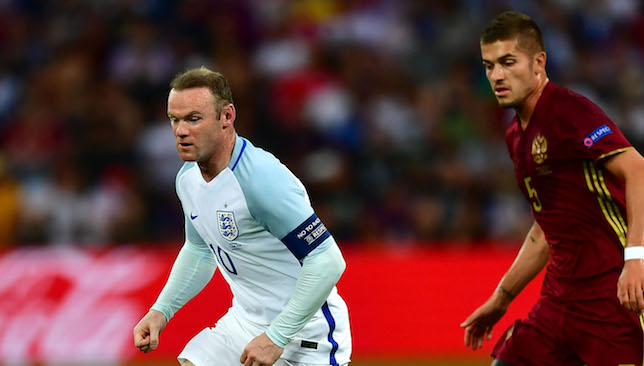
Stanley Matthews, Bobby Moore, David Beckham, Roy Race, Captain John Colby; England has had a fascination with the clean cut, statesmanlike hero throughout it’s football history. Focus has rarely been on the collective, the individual has been paramount. The man to have dragged his country to success and glory.
Few iconic teams, both domestically and internationally, have existed without once such figure. The flipside of this, of course, is that for every hero there has be to a villain and when the pendulum has swung, there have been countless scapegoats for failure.
Wayne Rooney hasn’t quite reached the latter classification for his career but his position as English football’s designated ‘hero’ since his dramatic international introduction 13 years ago, has not exactly been a smooth ride.
In the lead up to Euro 2016, the primary debate surrounding Roy Hodgson’s squad was did the captain deserve his place in the starting XI or was he there on reputation.
Bar him lifting the European Championship trophy at the Stade de France on July 10, his record in major tournaments will forever be scrutinised while his desire to leave Manchester United undoubtedly stained his name in the Stretford End, irrespective of if he breaks Sir Bobby Charlton’s record goal haul.
🎥 #ENG captain @WayneRooney says he and his teammates won't be distracted by comments from the opposition https://t.co/s8tXYmqwmb
— England (@England) June 15, 2016
Curiously, Rooney remains a more universally-popular figure among England fans than he does those who have watched him every week for the last 12 years. Because there will always be something intrinsically English about the way he plays. The street footballer who demands little fuss or fanfare whenever he steps onto the field.
Infinitely skilled he may be, but when Rooney has produced magic, it’s always had an everyman appeal about it, prompting the mental reaction of, ‘I can do that’, unlike, for example, the other-wordly genius of Lionel Messi or Ronaldinho.
The great contradiction with the 30-year-old is that although his approach to the game may be simplistic, and the man himself an understated and humble character, he cannot help but command attention.
England expects and Rooney has been the man required to lift the Three Lions from their mediocre purr of the 2000s into some idea of entitled greatness. With each tournament, it’s been him pictured as some kind of snarling representation of a Lion on billboards, newspapers and in TV adverts.
He hasn’t achieved this but that’s maybe because what everyone wants Rooney to be isn’t close to the reality of what he actually is, at least not in 2016, anyway.
No longer able to beat a man with a burst of pace, or thunder into challenges with the same gusto before regaining possession and launching a counter-attack, this is a refined version and one that isn’t capable of being the hero he’s been typecast for so long.
That was certainly evident in Marseille against Russia when he delivered an encouraging display as part of Hodgson’s decision to experiment with a three-man midfield. He faded after half-time but it was a performance of quiet assurance.
Straightforward and uncomplicated, it was a display more befitting of Rooney’s natural character.
Once upon a time, the prospect of facing Wales would have been met with fire and brimstone and, let’s not kid ourselves, Rooney still has that in his game and will undoubtedly be fired up for Thursday night’s clash.
But the hero England wanted him to become looks far more comfortable as the sidekick, rather than the leading man.